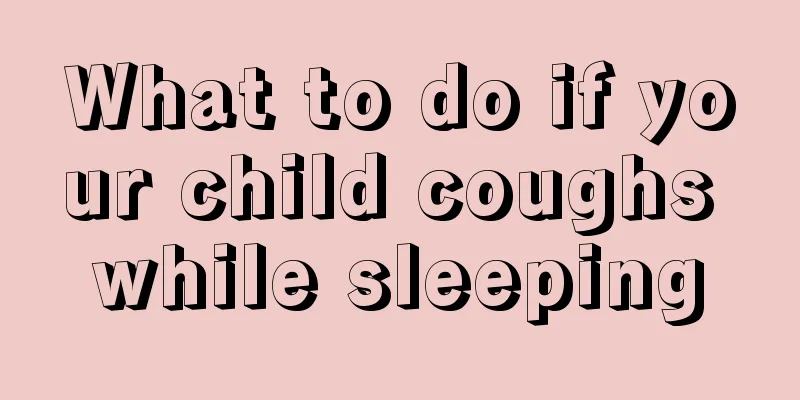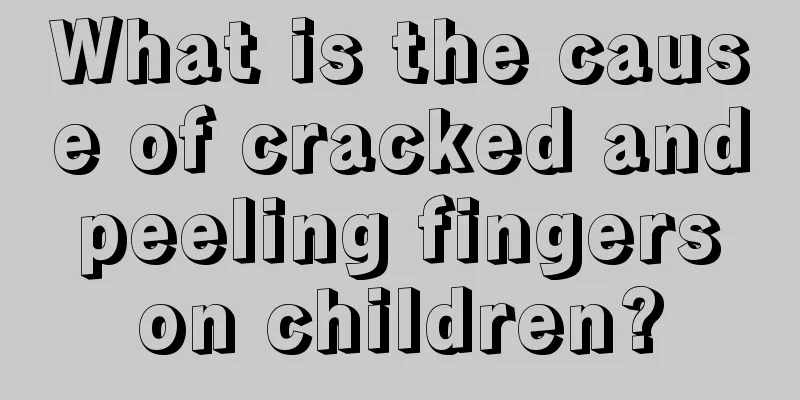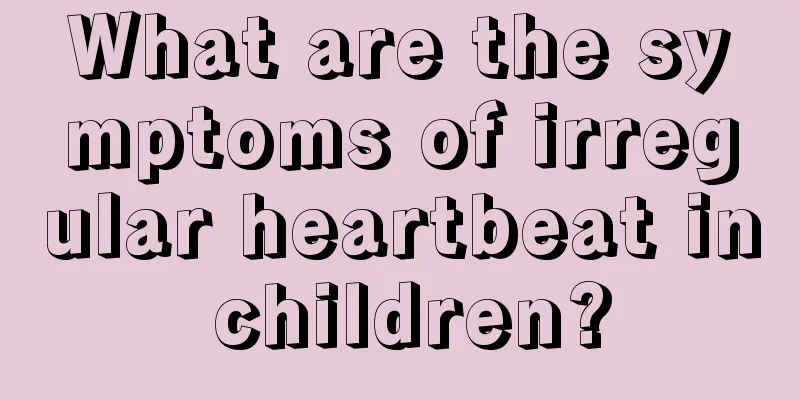Don’t give your baby medicine for diarrhea. Remember these seven misunderstandings

|
When babies are young, they are weak and easily attacked by some diseases, so they often get sick with fever and diarrhea. When your baby has diarrhea, there is no need to rush to give medicine. Sometimes this diarrhea is physiological and you need to distinguish the cause of the diarrhea. Mothers must remember the following seven misunderstandings. Myth 1: The baby has a high fever and is very anxious, while diarrhea is a minor problem Medical observation: Parents should not underestimate the milk, which contains a large amount of electrolytes and water. Electrolytes are essential for maintaining the plasma volume of the human body and are the material basis for maintaining the acid-base balance in the body. The role of water to the human body is even more important. Severe dehydration in infants and young children can be life-threatening. On the contrary, high fever is a mechanism for infants and young children to fight disease and is not as scary as parents imagine. Myth 2: The most important thing to treat diarrhea is taking medicine or injections Medical observation: Because the baby's intestinal environment is damaged, medicine is not the most important, nor the only treatment method. Oral rehydration, food therapy and careful dietary care play a vital role in the treatment of diarrhea. In particular, some drugs are difficult to absorb in the intestines at this time, and the active ingredients of injected and infused drugs do not have an ideal effect on the stomach and intestines. In short, drug treatment for diarrhea is not the most important thing, so parents' home and dietary care are the most important. The baby often suffers from diarrhea, which makes the mother feel distressed and worried. Infant and young child diarrhea is one of the common diseases in children. So is diarrhea destined to occur frequently? no. Can diarrhea be successfully prevented through mother’s skillful care? Can. Please eliminate these 7 myths first. Mothers must pay attention to these seven common misunderstandings about babies’ frequent diarrhea! Myth 3: Parents give medication as soon as their baby has diarrhea Medical observation: Some parents will use medicines immediately when they see their children have diarrhea. These medicines come from: medicines that were not finished during the last diarrhea; they buy medicines themselves based on their own experience and the recommendations of the pharmacy, etc. Inappropriate medical management leads to frequent changes in medications and artificial drug tolerance. In fact, the causes, symptoms and treatments of diarrhea may be different each time, and parents are unable to summarize and distinguish them. Please take the medicine under the guidance of a doctor! Also, don't just focus on antidiarrhea drugs. Changing one after another will only waste money and make your child suffer. Diarrhea is the result, not the cause of the disease, so the root cause should be treated, not just stopping the diarrhea. Myth 4: Diarrhea is caused by eating, so it is only natural to restrict your diet. Medical observation: It is not recommended to restrict the food intake of infants and young children with diarrhea, and water intake should not be restricted either. Infants and young children are in a stage of rapid growth in their bodies and brains. Children with diarrhea have already lost nutrients, so fasting and depriving them of water would only make the situation worse. Many children with diarrhea often suffer from "hunger diarrhea" due to improper treatment. This is how diarrhea becomes persistent. Myth 5: We usually call it enteritis, and since there is "inflammation" we should take antibiotics Medical Observation: This is a typical example of the abuse of antibiotics. Indiscriminate use of antibiotics to treat infantile diarrhea is the main cause of treatment failure. The number of non-pathogenic bacteria in the infant's intestines is small, and a normal flora system has not yet been established. The intestinal environment is unstable and easily damaged by external factors. Once the internal environment is damaged, it is difficult to recover. Therefore, antibiotics are only needed when diarrhea is confirmed to be caused by bacterial infection by a doctor, and must be used under the guidance of a doctor. Mothers must pay attention to these seven common misunderstandings about babies’ frequent diarrhea! Myth 6: If your baby has diarrhea, he or she must be sick Medical observation: It is not uncommon for infants and young children, especially babies, to suffer from diarrhea that is not caused by illness. For example, if a breastfed baby has frequent and watery bowel movements, this is not diarrhea. If the mother's diet changes, such as eating cold or greasy food, beer, etc., or the mother feeds the child immediately after returning from outside, such reasons may cause the child's stool to change. Don't immediately think that the child has diarrhea and give medicine or injections immediately. Wait and see if it is caused by breast milk. Perhaps it will get better soon after one or two times of diarrhea. In addition, during the process of adding complementary foods, the baby's stool may become loose, green, contain curds, and occur more frequently. This is not diarrhea, but may be due to the baby's inability to adapt to the new complementary foods. Reducing the amount of complementary food or stopping adding it will quickly improve. Myth 7: All diarrheal illnesses are treated the same Medical observation: There are many causes of diarrhea in infants and young children, including bacterial infectious diarrhea, the most representative of which is bacillary dysentery; and viral infectious diarrhea, the most representative of which is autumn diarrhea. Broadly speaking, infant and young child diarrhea also includes: hunger diarrhea, indigestion diarrhea, lactose intolerance diarrhea, and irritable bowel syndrome. They each have different treatment methods, so parents should not confuse them! |
<<: What are the main causes of night sweats in children?
>>: What are the symptoms of laryngitis in children?
Recommend
Why does my child always want to urinate but doesn’t urinate much?
The symptoms of frequent urination are very commo...
Is it normal for a baby to start teething at 4 months old?
We know that babies usually grow teeth at 6 month...
How to give injections to children
No one likes injections, but they are an inevitab...
What are the symptoms of mite allergy in children?
Children's skin is more sensitive than that o...
What kind of pillow is good for children?
We use pillows every day, because we need to use ...
What are the massage techniques for children with colds?
As babies grow up, it is inevitable that they wil...
What is the cause of heel pain in a 10-year-old child?
Children are in a lively and active period, so it...
What are the medicines for clearing heat and purging fire in children?
I believe that everyone has some common household...
How to choose a children's car?
Today's society is progressing and the times ...
White spots on the child's skin
Children with fair skin are very attractive. Many...
Who should be screened for newborn fundus?
Newborn fundus screening is a way to screen wheth...
Diagnosis and classification of lead poisoning in children
Because children are young and often cannot take ...
What causes retinal hemorrhage in children?
Retinal hemorrhage in children is generally not c...
What should I do if my son has a bad stomach?
The main reason why a son has a bad stomach is th...
What to do if your child has eye bleeding
The eyes are the windows to the soul. It is becau...









